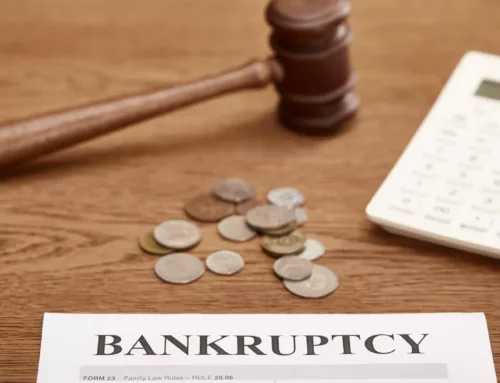Bankruptcy Should Not Be A Problem on Your Retirement Savings
When faced with possible financial failure in Michigan, an individual might contemplate withdrawing from their retirement plans or filing for bankruptcy. However, bankruptcy might be seen as a problem regarding your retirement savings. You may find yourself pondering: How will bankruptcy in Michigan affect my retirement savings?
This concern is both valid and shared by others facing economic challenges. Therefore, understanding the complexities of bankruptcy and its implications on retirement funds is crucial for informed decision-making.
Quick Summary:
- Gain insights into how bankruptcy impacts retirement savings in Michigan, exploring key aspects and complexities for informed decision-making.
- Both Chapter 7 and Chapter 13 protect IRAs in Michigan under federal laws, allowing individuals to retain a portion of their savings.
- Chapter 7 and Chapter 13 offer substantial protection for 401(k) plans, governed by ERISA, contributing to financial stability.
- Various retirement plans, including 403(b), defined benefit, and profit-sharing plans, are commonly safeguarded in bankruptcy for financial security.
- Withdrawing retirement savings poses tax implications and jeopardizes future financial security, while bankruptcy offers structured protection for accounts.
In this article, we will delve into the critical aspects of what happens to retirement savings during bankruptcy, breaking down complex concepts into digestible information for you.
Would My Retirement Savings Be Safe in Bankruptcy?
How will bankruptcy in Michigan affect your retirement savings? When confronting the prospect of bankruptcy, individuals often are at odds with the treatment of their hard-earned retirement savings. Knowing that bankruptcy does not automatically wipe out retirement accounts is critical, whether that is Chapter 7 or Chapter 13 bankruptcy.
In most bankruptcy cases, retirement funds are safeguarded to ensure individuals have a financial cushion during their later years.
Is My Individual Retirement Account (IRA) Exempt in Bankruptcy?
Yes. Both Chapter 7 and Chapter 13 bankruptcy proceedings typically offer protection for IRAs, allowing individuals to retain a portion of their retirement savings.
Chapter 7
In Chapter 7 bankruptcy, assets are typically liquidated to pay off creditors, but certain assets are exempt from this process. One significant exemption is retirement accounts, including IRAs. Federal bankruptcy laws protect a certain amount of funds held in IRAs, shielding them from being used to settle debts.
In Michigan, most IRAs are protected from federal regulations, offering an exemption with a maximum value of $1,512,350 per individual. Yet, any amounts exceeding this limit may be subject to payment to creditors.
Chapter 13
Chapter 13 bankruptcy involves creating a structured repayment plan to settle debts over a specific period, typically three to five years. Unlike Chapter 7, Chapter 13 doesn’t require liquidation of assets. Instead, debtors retain their property and devise a plan to repay creditors over time.
Regarding IRAs in Chapter 13, the same federal exemption principles apply. Debtors can often keep their IRAs intact during the repayment period, contributing to the overall stability of their financial future.
Would a 401(k) Plan be Affected By Bankruptcy?
A 401(k) plan is a type of employer-sponsored retirement savings account that allows employees to contribute a portion of their salary on a pre-tax basis. In the context of bankruptcy, particularly Chapter 7 and Chapter 13 bankruptcies, the treatment of a 401(k) plan is generally favorable for the account holder. Here’s how it is affected:
Chapter 7
Federal bankruptcy laws provide substantial protection for certain types of assets, including 401(k) plans. These retirement accounts are often considered exempt, meaning they are shielded from liquidation to satisfy debts.
The Employee Retirement Income Security Act (ERISA) governs the treatment of 401(k) plans in bankruptcy. Under ERISA, 401(k) plans are generally protected up to a specific limit, allowing individuals to retain their retirement savings even amid financial challenges.
Chapter 13
401(k) plans enjoy protection in Chapter 13 as well. Debtors can typically keep their 401(k) intact during the repayment period, contributing to the overall financial stability of their future.
What Other Retirement Plans are Exempt from Bankruptcy?
In bankruptcy proceedings, various retirement plans enjoy exemptions to protect individuals’ savings. Besides 401(k) plans and IRAs, several other retirement accounts are commonly exempt. Here are some examples:
- 403(b) Plans: Similar to 401(k) plans, 403(b) plans are typically exempt from bankruptcy proceedings in Michigan. These retirement plans are often associated with employees of educational and nonprofit institutions.
- Defined Benefit Plans: Pension plans that guarantee a specific benefit at retirement, known as defined benefit plans, are typically protected in bankruptcy. These plans provide regular payments based on factors like salary history and years of service.
- Profit-Sharing Plans: Profit-sharing plans, which allow employers to contribute a portion of their profits to employees’ retirement accounts, are exempt from bankruptcy proceedings.
Withdrawing vs. Keeping: What Should I Do With My Retirement Savings in Bankruptcy?
Withdrawing retirement savings as an alternative to bankruptcy is a decision that requires careful consideration. While it may provide immediate funds to address financial challenges, it has significant drawbacks and potential long-term consequences. Here are some factors to consider:
- Tax Implications: Early withdrawals from retirement accounts, especially before 60, may be subject to income tax and an additional early withdrawal penalty. The tax consequences can significantly reduce the amount you receive from the withdrawal.
- Depleting Future Financial Security: Retirement savings are intended to provide financial security in your later years. Withdrawing these funds prematurely may cause a problem to your future financial well-being. Depleting your retirement savings may result in insufficient funds to cover living expenses during retirement.
- Bankruptcy Protection: Retirement accounts are often protected in bankruptcy proceedings, allowing you to retain a portion of your savings even while addressing financial challenges. Declaring bankruptcy may provide a structured and legal way to manage debts while preserving essential assets.
- Impact on Credit Score: Bankruptcy harms credit scores, but so does financial hardship and late payments. Withdrawing retirement savings won’t necessarily spare your credit score from damage.
- Consulting with a Financial Advisor: Before making any decisions, it’s advisable to consult with a financial advisor or legal professional. They can provide personalized advice based on your situation, guiding you on the best action steps.
- Alternatives to Bankruptcy: Explore alternatives to bankruptcy, such as debt negotiation, consolidation, or working with creditors to establish a manageable repayment plan. Bankruptcy should be considered when other options are not feasible or efficient.
Withdrawing retirement savings as an alternative to bankruptcy should be approached cautiously. It’s essential to weigh the immediate financial relief against the potential long-term consequences.
Work With Our Bankruptcy Attorneys Today!
“How will bankruptcy in Michigan affect my retirement savings?” is a question you might likely ask, and the solution can be provided by an experienced legal team.
A bankruptcy attorney can be a crucial ally in navigating the complex terrain of financial recovery. Their skill extends beyond legal jargon, providing a clear roadmap and strategic guidance through bankruptcy proceedings. You can protect your hard-earned assets and secure a stable future with proper legal guidance.
Hammerschmidt Stickradt & Associates, based in Royal Oak, MI, stands ready to assist you through these complexities, providing advice and advocacy to ensure your retirement savings remain safeguarded during challenging times. Get a free consultation today!



